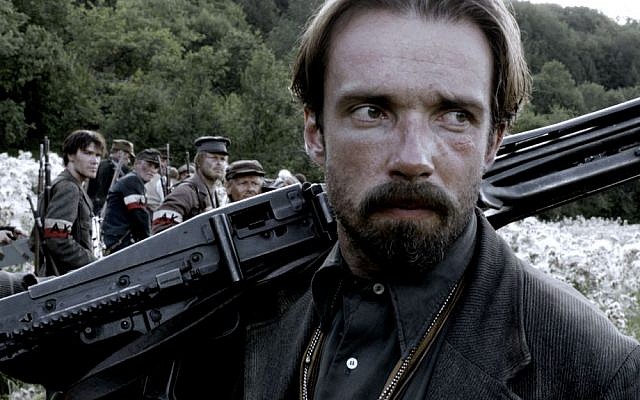
We treat it as neutral, as history of androgynous people when it is really not. Our history is men’s history with some women’s history attached. Wherever we go, whatever we do that baggage of expectations comes with us. There are a whole heap of societal attitudes and functions that are inextricably attached to women and men. Women in an army are not just people dressed in skirts. Our gender fundamentally affects everything we do. The way I understand this comment is that women are not simply a carbon copy of men, just as men are not simply women with some physical differences. “Gender must be both the subject and the method.” “We cannot simply extend military history to women’s history”, she said. Hagemann gave some interesting advice for historians researching women and war throughout her talk. Some of these women volunteered to do so she observed. German women worked in the SS and in flak gun auxiliaries. She said that the Germans did “everything possible” to classify their women in combat positions as civilians. Hagemann said it was easier for countries who were defending their countries or liberating them to reconcile to the fact they were using women in combat positions. The British used some women in aerial defence. During World War II the Soviet Union had female units which effectively shamed men into fighting. The needs of the military as wars progressed meant that women moved from the home into the production of armaments and then into combat roles. Hagemann noted that women in this program are mostly portrayed at the home front or working, or heroines of the resistance or secret agents or nurses, Her talk highlighted the fact that women did more than that. It explores the atrocities committed by Germany during the Nazi period and the responsibility of ordinary Germans. It was broadcast early in 2013 to a large audience. Professor Karen Hagemann from University of North Carolina opened her keynote talk at the Australian Historical Association conference in Brisbane by talking about a landmark German mini-series, ‘ Unsere Mütter, unsere Väter’ (Our Mothers, Our Fathers). Men go to battle, women are responsible for keeping things going at home.


It is while a nation is at war that underlying attitudes of society about the proper roles of men and women become exposed and reinforced. Some historians are particularly interested in gender relations and gender roles during war-time. I will write about it later.Forgiveness – Kemal Atatürk’s words at Gallipoli. SV Sandhausen – a soccer game – in clear blue skies and a 19° chill factor. Then I showed the pic to Erica, my girlfriend, and she said there’s no way it couldn’t be mine. When I first saw this, I wasn’t positive the head was mine, but I was almost positive. Hopefully this can be made out in the film and wasn’t left on the cutting room floor.Īnyway, as I was Googling ‘Volker Bruch Babylon Berlin,’ I found this pic of him with my head in the background, leaning into the glowing white orb. I was usually talking to them or escorting them somewhere.

In the three or four scenes I was in, the director set me up with three very pretty Frauen. I was picking up women in the background, doing really well actually. It was in a hedonistic 1920s bar and he was at the other end of the bar playing an inspector with another inspector. I vaguely remembered Herr Bruch from my day of filming.
#Unsere mütter unsere väter feed series
The series takes place in 1929 during the Weimar Republic and follows police inspector Gereon Rath, who has been transferred from the city of Cologne to Berlin, and aspiring police inspector Charlotte Ritter. Finally, I did a Google search and found out that last summer he worked on a film that I am an extra in, Babylon Berlin.īabylon Berlin is a German period drama television series based on novels by Volker Kutscher. The main actor and narrator of the series is Volker Bruch, who I’d never heard of but looked strangely familiar for some reason. The other night, I was watching the 3rd part in a really good 3 part German miniseries called Unsere Mütter Unsere Väter (2013).


 0 kommentar(er)
0 kommentar(er)
